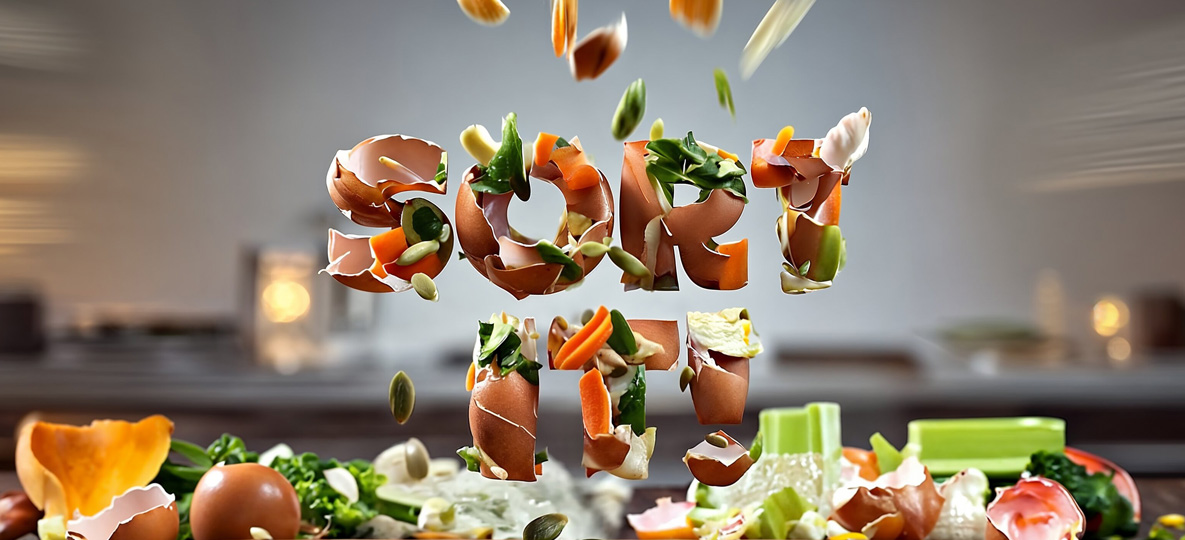What Goes In Your Brown Bin? Here’s Our ‘Sort It’ Guide.

By adopting some simple practices, you're not just maintaining a cleaner kitchen — you're part of a greener solution that benefits your community, environment, and pocket.
Curious about what exactly belongs in your brown bin—and why it’s so important? Let’s break it down.
The brown bin is your go-to for organic waste, and recycling it properly offers huge benefits for your home, the environment, and your wallet.
Here’s what you can put in your brown bin:
-
All food waste — both raw and cooked, including meat, fish (and bones), plate scrapings, bread, cakes, dairy products, eggshells, fruit and vegetable peelings, and out-of-date food (just remove any packaging first)
-
Coffee grounds & tea bags, as well as coffee filters, provided they’re paper — but plastic-containing filters should go in general waste
-
Food-soiled paper items — like napkins, paper towels, food-stained sections of pizza boxes
-
Light garden waste — grass clippings, small twigs, cut flowers, and plant trimmings
-
Certified compostable packaging — such as compostable cups, bowls, and cutlery (look for the EN 13432 / ‘Seedling’ certification)
Why Recycle Your Food Waste?
-
Environmental Impact:
Diverting food waste from landfill drops methane emissions and helps protect ecosystems. Composting alongside anaerobic digestion turns waste into valuable compost and even green energy -
Circular Economy Benefits:
By recycling organic waste, you help create compost essential for farming, landscaping, community gardens — closing the loop on a circular, sustainable economy -
Compliance & Accessibility:
Since January 2024, every household in Ireland is entitled to a brown bin for food and garden waste. This change makes participation easier and helps meet national recycling targets -
Cost Savings:
Less general waste means lower disposal costs—your brown bin helps keep black bin charges down. Also, forming good habits like separating waste can reduce overall waste production -
Avoid Contamination:
Over 50% of household food waste in Ireland ends up in the wrong bin. Recycling correctly ensures it goes where it belongs—helping cut contamination and improving recycling efficiency
Quick Tips: Make the Most of Your Brown Bin
-
Set up a mini-system at home:
Use three separate bins inside (food, recycling, general waste). Keep the brown bin handy; make general waste harder to reach to encourage recycling -
Use labels and visuals:
Label each bin with pictures or simple words to avoid confusion—even early mornings will go smoothly -
Create ownership and awareness:
Assign someone to manage the bins—this fosters care, accountability, and minimises contamination -
Track your progress:
Keep a visual log of how much you’re recycling—use tools like BinDex (CityBin’s recycling stat report) to stay motivated -
Clean & maintain your bin:
Rinse occasionally with vinegar or newspaper liners to reduce odours and keep pests away.
Ready to Use Your Brown Bin?
Step 1: Collect food scraps, coffee grounds, soiled paper, small garden cuttings — just avoid packaging, plastics, and oils.
Step 2: Confirm everything is compostable—look for EN 13432 certification.
Step 3: Dump everything into your brown bin and keep it well-organised.
Step 4: Watch for collection day, and take pride in making a positive impact!
By adopting these simple practices, you’re not just maintaining a cleaner kitchen — you’re part of a greener solution that benefits your community, environment, and pocket.




